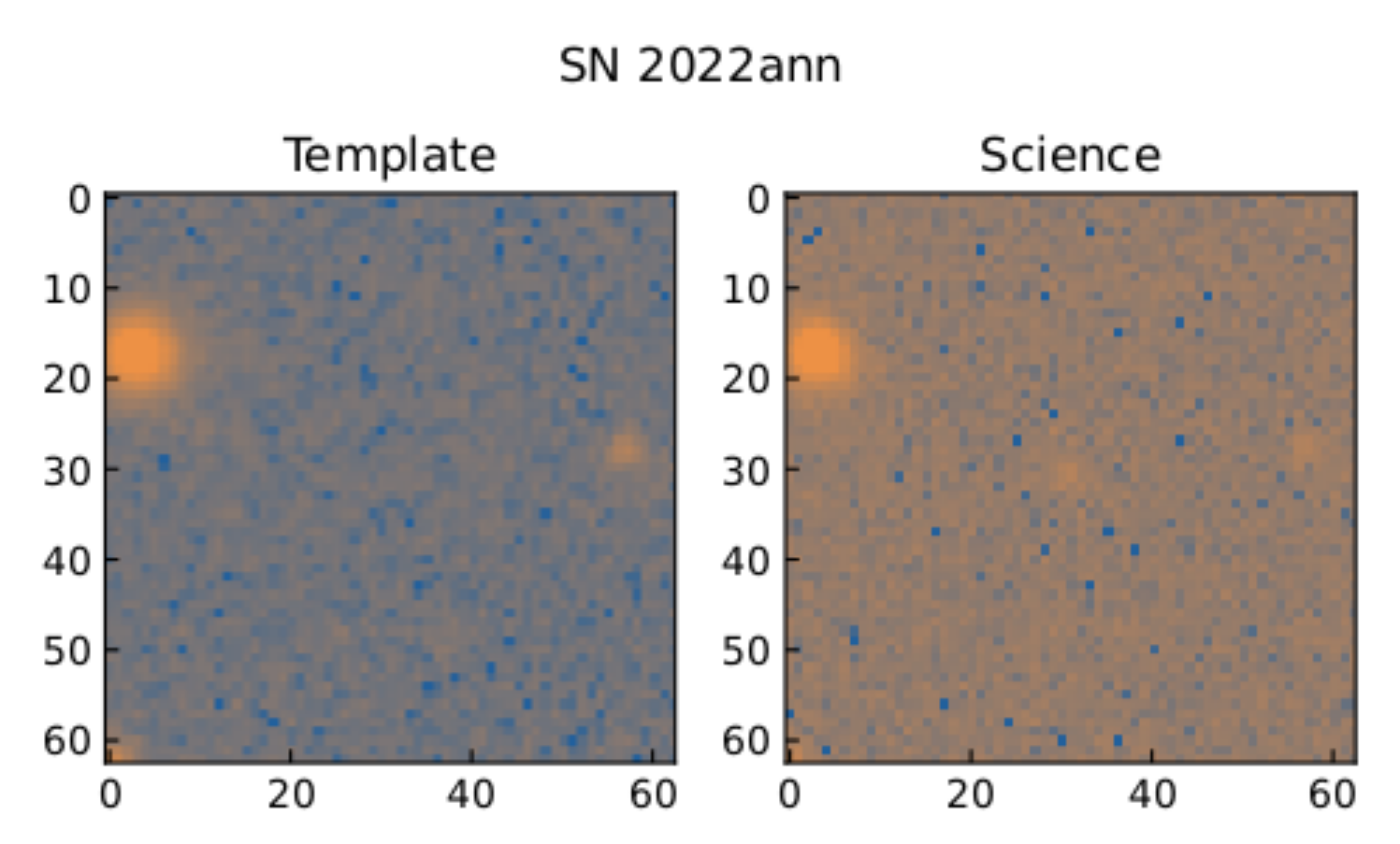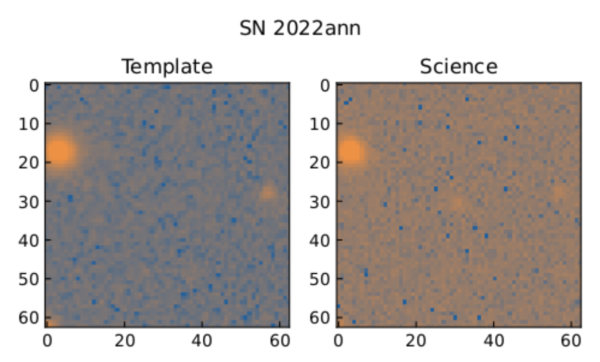Project 25:
ELEPHANT: ExtragaLactic alErt Pipeline for Hostless AstroNomical Transients
Transient astronomical events that exhibit no discernible association with a host galaxy are commonly referred to as hostless. These rare phenomena are associated with extremely energetic events, and they can offer unique insights into the properties and evolution of stars and galaxies.
However, the sheer number of transients captured by contemporary high-cadence astronomical surveys renders the manual identification of all potential hostless transients impractical. Therefore, creating a systematic identification tool is crucial for studying these elusive events. We present the ExtragaLactic alErt Pipeline for Hostless AstroNomical Transients (ELEPHANT), a framework for filtering hostless transients in astronomical data streams.

Example of hostless transient.
We used Fink to access all the ZTF alerts produced between January/2022 and December/2023, selecting only those associated with extragalactic transients. We then processed the associated stamps using a sequence of image analysis techniques to retrieve hostless candidates. We find that less than 2% of all analyzed transients are potentially hostless. Among them, approximately 10% have a spectroscopic class reported on TNS, with Type Ia supernova being the most common class, followed by SLSN. Among the hostless candidates retrieved by our pipeline, there was SN 2018ibb, which has been proposed to be a PISN candidate; and SN 2022ann, one of only five known SNe Icn. When no class is reported on TNS, the dominant classes are QSO and SN candidates, the former obtained from SIMBAD and the latter inferred using the Fink ML classifier.
ELEPHANT represents an effective strategy to filter extragalactic events within large and complex astronomical alert streams. There are many applications for which this pipeline will be useful, ranging from transient selection for follow-up to studies of transient environments.
Full citation: Pessi et al, 2024 – submitted to Astronomy and Astrophysics
Team:
Priscila J. Pessi, Stockholm U. (Sweden)
Rupesh Durgesh, Industry (Germany)
Lilianne Nakazono, U. Sao Paulo (Brazil)
E. E. Hayes, Cambridge U. (UK)
Raphael A. P. Oliveira, U. Warsaw (Poland)
Emille E. O. Ishida, CNRS/UCA (France)
Andre Moitinho, U. Lisbon/CENTRA (Portugal)
Alberto Krone-Martins, U. California Irvine (USA)
Ben Moews, U. Edinburgh (UK)
Rafael S. de Souza, U. Hertfordshire (UK)
Robert Beck, Industry (Hungary)
Michael A. Kuhn, U. Hertfordshire (UK)
Katarzyna Nowak, U. Hertfordshire (UK)
Sam Vaughan, Macquarie U. (Australia)

